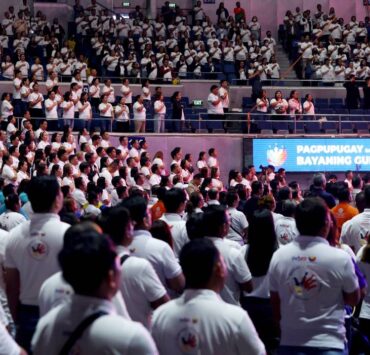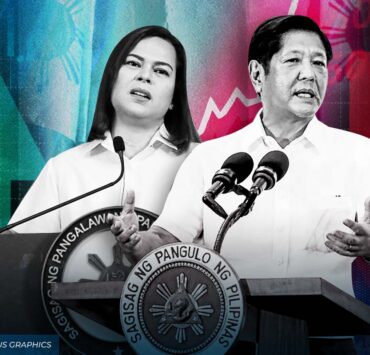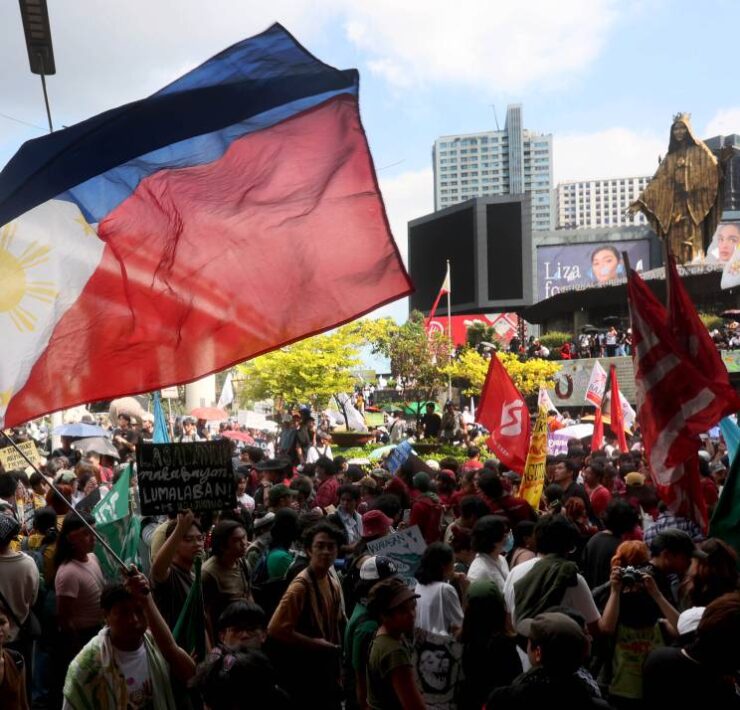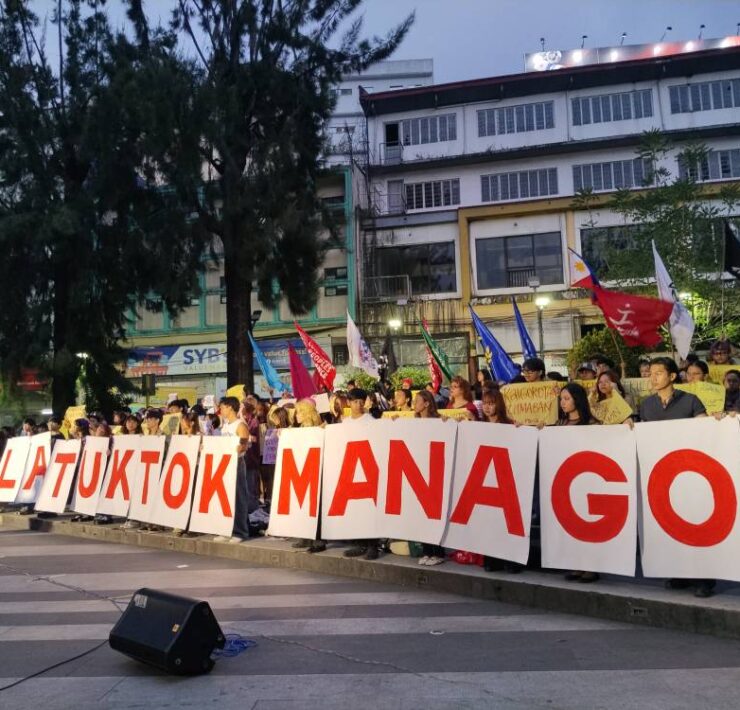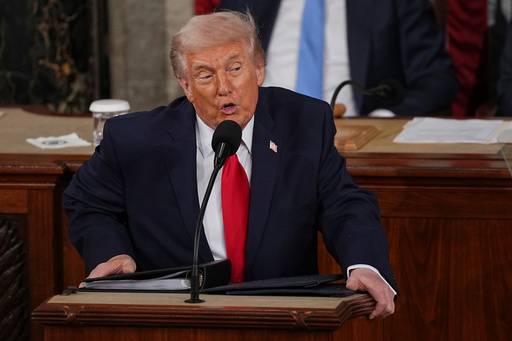Bloc to fight fake news formed to promote digital literacy
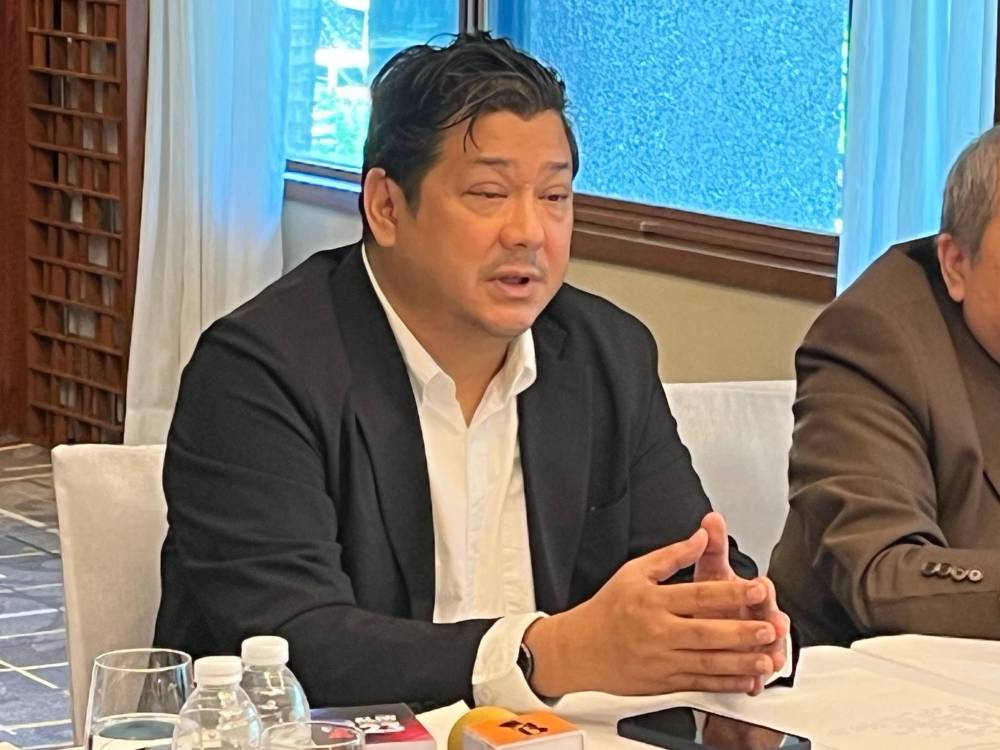
A private sector-led coalition to combat fake news online was launched on Monday to support the government in its fight against misinformation and false narratives in the digital space.
Digital Media Standards Coalition (DMSC), which seeks to curb the spread of misinformation across social media platforms and promote digital literacy, currently includes more than 10 groups, according to its chair, Antonilo Mauricio.
“We are hoping that we will be able to help the legislature craft a law that will prevent the proliferation of fake news in all aspects in the Philippines,” Mauricio said during a press conference in Makati.
Its initial members include the Blockchain Council of the Philippines, the Creator and Influencer Council of the Philippines, the Kapisanan ng Social Media Broadcasters ng Pilipinas, the Cybersecurity Council of the Philippines, and the Global AI Council Philippines, the National Coalition for Financial Management Students, the Junior Confederation of Finance Association Philippines, the Finance Educators Association of the Philippines, and Asian Institute of Journalism and Communication (AIJC) trustee Olivia Celeste Villafuerte.
Code of ethics
Mauricio said they were also developing a code of ethics that it would submit within two weeks to Bataan Rep. Geraldine Roman, who is working on drafting an antifake news bill in the House of Representatives.
According to Roman, she is in the process of finalizing the bill, with a target to file it by June 2.
She said that her office was consulting with the coalition and other stakeholders to ensure the bill would address the evolving challenges of misinformation and fake news.
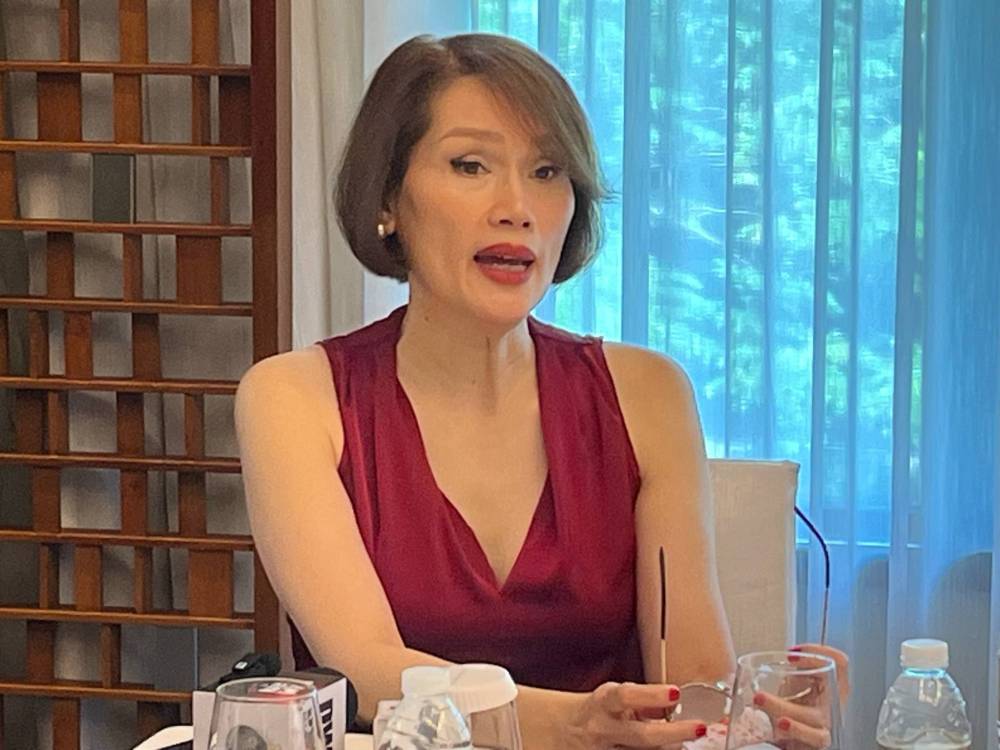
“Basically, what it seeks to do is to regulate social media platforms by, number one, requiring them to establish a legal entity or presence in our country. Number two, require these social media platforms to verify the different accounts,” Roman pointed out.
Together with efforts to regulate social media platforms, she said that they were also working to prevent censorship and ensure that the bill strikes a balance between curbing misinformation and safeguarding freedom of speech, allowing for both accountability and the protection of individual rights online.
With strong backing from other lawmakers in the lower chamber, Roman expressed hope that her bill would be passed either later this year or in the next legislative session.
Fake accounts
Meanwhile, several government agencies have warned against fake accounts masking as officials of their offices and promising jobs and potential earnings.
The Bangko Sentral ng Pilipinas (BSP) on Monday issued an advisory alerting the public against a Viber account using the photo of Deputy Governor Chuchi Fonacier to offer online jobs.
According to the BSP, the sender was recruiting for an e-commerce company that supposedly offers a daily income ranging from P500 to P5,000.
“To guard against possible illegal activities, the BSP urges the public to refrain from engaging with and providing personal information to unknown individuals,” the central bank said.
The state-run Philippine Amusement and Gaming Corp. (Pagcor) also said in a separate statement that it had received reports about contract agreements allegedly linked to Lucky 7 Bingo Corp.
Pagcor explained that the company supposedly offered “guidance and support” for people to potentially earn P50,000 through its lottery platform.
As part of the fraudulent agreement, bettors are required to make an initial deposit of P3,000, it added.
“While Lucky 7 Bingo Corp. is a legitimate licensee for e-games venue operations as of April 30, 2025, it does not hold any valid offshore gaming license,” said Jessa Fernandez, Pagcor head of offshore gaming and licensing.
“The license presented in said agreements is fake, and any engagement based on it is fraudulent,” Fernandez added.
Deepfake videos
The Securities and Exchange Commission (SEC) has also issued an alert regarding “an alarming rise in the use of deepfake technology” to promote bogus investment opportunities.
The corporate watchdog refers to deepfakes as synthetic videos, audio recordings or images created using artificial intelligence to mimic real people.
Several billionaires and business tycoons have been used in this scam in recent months, including Jaime Augusto Zobel de Ayala, Lance Gokongwei, Ramon Ang and Enrique Razon Jr., with some of their fake interviews also made to look like they were published on Inquirer.net.
“They undermine our ability to differentiate what is real and what is not,” the SEC said in its advisory. “This has and will continue to have tremendous economic and societal implications if not addressed.”
To prevent this, the SEC advised the public to identify the source of questionable content, verify whether the message aligns with what is usually expected of the person or entity, and determine if they were being pressured into doing “something unusual.”
“Be wary of messages urging you to download unfamiliar apps, click on suspicious links, provide personal information or invest in offers that seem too good to be true,” it noted.














